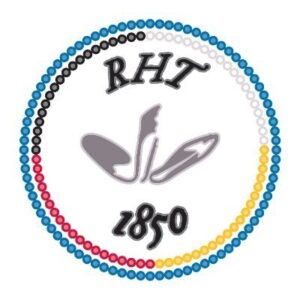Treaty payment scam targets Robinson Huron Treaty citizens
ROBINSON HURON TREATY TERRITORY – Elders from Batchewana First Nation, and possibly other Robinson Huron Treaty communities and citizens, have received fraudulent letters from a person or persons claiming that they are distributing funds from the $10 Billion Robinson Huron Treaty Litigation Fund settlement agreement announced this past summer. The scam letters incorrectly say that payments arising from the litigation are currently being processed.
The letters, which included the Robinson Huron Trust Logo, and logos for Canada and Ontario, asked the Elders to provide personal information to confirm that they were eligible for a payment, and their banking information to allow for direct deposit. The messages were unsigned.
Mike Restoule, chair of the Robinson Huron Trust, says that it is unknown how many of these messages have gone out or if anyone has shared private information as a result.
Restoule noted that the letters seemed to be localized–targeted to a specific set of people, especially at Batchewana, rather than all Robinson Huron annuitants. He said it’s likely that the perpetrator knows the people they are attempting to steal from. It may be “someone who had dealings with a First Nation and got some names and addresses.”
Several Elders alerted the Robinson Huron trustees of the messages and the legal team sent out a detailed alert at once. The alert advised people not to open e-mails from people they don’t know, and most importantly, to refuse to act immediately regardless of the circumstances.
“Scammers often use urgency as a tactic to get your information quickly. Please verify the credibility of an organization before sharing your personal information.”
Dwayne Nashkawa, a member of Chippewas of the Saugeen who served as CEO of Nipissing First Nation for many years, said that often when a First Nation receives a large payment, vulnerable community members are approached by unscrupulous opportunists including predatory lenders, looking to profit. Nashkawa said that the phishing scams are a new way to take advantage of folks in these situations.
Restoule said that any distribution of money arising from the Robinson Huron treaty agreement will be done by each community. If anyone reaches out to a community member claiming to be involved with money distribution other than their own Chief and Council, they should immediately contact their First Nation office and report the incident to: info@robinsonhurontreaty1850.com.
The Robinson Huron Treaty money will not be distributed until after both the Federal and Ontario governments have approved the agreement. Both Ontario and Canada have said that this process should be completed by the end of December and according to reports, both the federal and provincial processes are on track. The money will be paid out to the Robinson Huron Trust 60 days after the agreement is approved by both levels of government, and the Robinson Huron Trust will then distribute funds to the communities.



